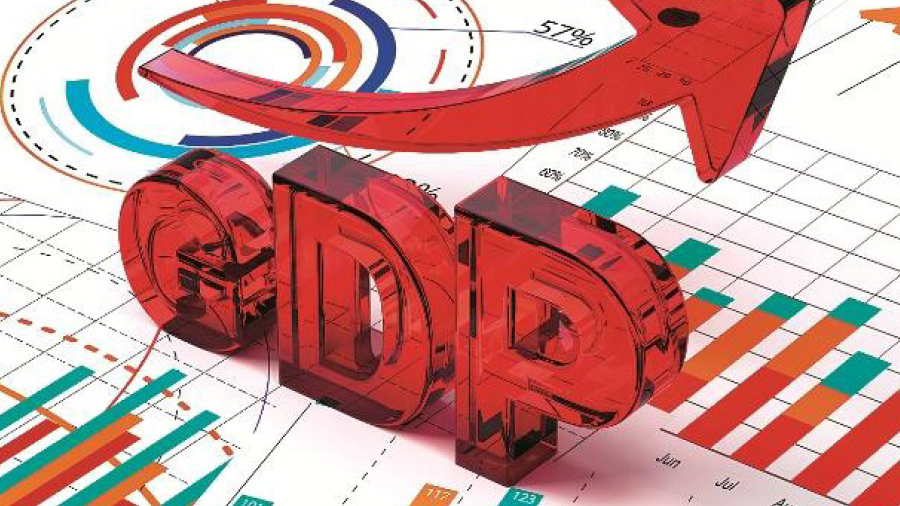According to a World Bank report released on 11th July 2018, India has surpassed France to become the sixth largest economy in the world, pushing France to the seventh spot in 2017.The updated World Bank Report mentions that while France’s Gross Domestic Product (GDP) in late 2017 amounted to $2.582 trillion, the Indian GDP stood at $2.597 trillion during the same period.
The feat is all the more significant as it not only silences the critics of the present Modi government’s economic reforms, be it Demonetization or the Goods and Services Tax (GST), but also comes after several quarters of economic slowdown faced by the Indian economy, owing to the ‘teething’ effects of such large-scale reforms. Barring these select transitional quarters, the Indian economy has consistently delivered 7%+ growth ratings, an achievement rarely matched by other world economies. The report cites strong manufacturing and higher consumer spending as the main factors driving India’s economic growth in 2017 and these factors continue to play crucial role in sustaining the rise in our GDP.
“India has doubled its GDP within a decade and is expected to power ahead as a key economic engine in Asia, even as China slows down,” the report noted.
The report also mentions the top five economies of the world being the United States, China, Japan, Germany and Britain respectively. Furthermore, a London-based think-tank, Centre for Economics and Business Research, had earlier estimated that India would soon surpass Britain also and might as well become the third-largest economy in the world by 2032. This also comes in the context of a recent International Monetary Fund report projecting India’s growth rate at 7.4% in 2018 and 7.8% in 2019. Such growth rates when compared to the current world average of 3.9% stand as a testament to the strong fundamentals of the Indian economy.
However, it must also be observed that despite its upward trend, the Indian economy has plenty of scope to further improve its fundamentals. Highlighting the demographic differences between India, at 1.34 billion people and France at 67 million people, the report says that the per capita income of the French is still 20 times higher than that of Indians. This fact must motivate the Indian people and act as a goal to achieve in the future and with the strong pace of India’s economic rise, this goal doesn’t seem a distant one.
While we must cheer at this huge milestone for our economy, one must not forget at this instance the unproductive criticism that the political opposition of the country leveled upon the transformational economic reform policies pursued by the government of Prime Minister Narendra Modi. While constructive opposition to any and every government policy works in the spirit of democracy, unfortunately, the Indian opposition has played an entirely conflicting role in this regard. The opposition, political and otherwise, rendered upon the government’s policies at the economic front,are not only unconstructive but also proved to be inaccurate with the statistics on Indian economy recently published by international institutions like the World Bank and IMF. What would rather be expected and appreciated of them is to play a complementary role in the policy-making and reform processes by suggesting practical alternatives to specific issues, constructively engaging with the government on their grievances and ensuring that the system of checks-and-balances in the Indian democracy is used to benefit the country in the long-run.
As a mature and vibrant democracy with the fastest growing economy in the world, India stands at a critical juncture of history. Now, more than ever, it needs a stable, responsive, committed and accountable government that can ensure a long-term, sustainable development of its economy. In its past four years, the current government has time and again proved its credentials on all major fronts, particularly the economy. Enacting long-due reforms in a time-bound, transparent and impact-driven manner has been the primary approach of this government, which has now started showing its results and India has started to emerge as a major economic actor at the global stage. Be it Indian PM Modi addressing the World Economic Forum summit in Davos as the Keynote speaker earlier this year or international economic institutions putting their weight behind India’s economic prospects, the instances to prove the above claims are plenty. India, under this government, has reiterated its faith and commitment to multilateralism, mutual trade benefits and sharing of economic prosperity for all, as the pillars of its economic policy. The widespread consensus at the national and international level about the India’s renewed engagement on the foreign policy and economic fronts confirm the government’s approach and initiatives while also ensuring high domestic public support favoring these measures. By playing the lead role in active involvement in regional and international multilateral institutions like the BRICS, SCO, G20, SAARC etc, India continues to assert that it has always opposed trade protectionism and will continue to do so even in times of adverse economic uncertainties arising from the West.
Finally, India as a country, must strive towards achieving long-term prosperity by following an inclusive, sustainable approach that works in tandem with its social and cultural values. India is being headed by a stable, accountable, active and transparent government after a long span of time and thus it must make its future choices wisely. The fastest and sixth largest economy of the world needs to ensure that its economic growth and social development reaches out to the last of its individuals without compromising on its environmental commitments. Such an approach would ensure that India surpasses other major economies and also sustains its growth in the decades to come.
(Intern, SPMRF)
(The views expressed are the author's own and do not necessarily reflect the position of the organisation)

